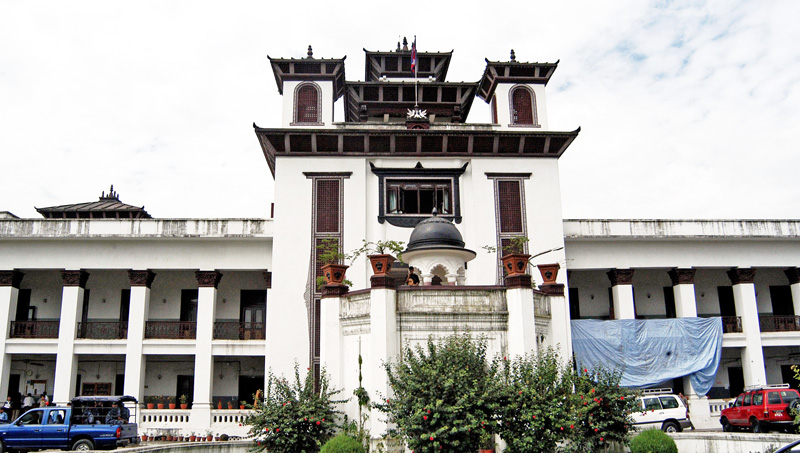EC proposes bill to fund parties
Kathmandu, April 27
The Election Commission has prepared a draft bill to integrate laws related to political parties, proposing funding by the government for parties that meet certain criteria and regulating the political parties to make them transparent and accountable to the people.
Parliament members suggested the EC to correct some provisions and finalise the bill at a meeting held between the members of State Affairs Committee and the EC commissioners at the commission’s office.
As proposed in the bill, a political party garnering at least 1.5 per cent votes will be funded from state coffers to run its office and budget allocated for the party would be determined on the basis of votes it garners.
A party that takes part in either federal or provincial parliament will benefit from the provision.
Members of fringe parties, including CPN-ML and Nepal Workers’ and Peasants’ Party objected to the provision, according to sources.
The bill, however, does not mention the exact budget, as it is still under discussion. The government can set up a separate fund for that purpose, adds the draft bill.
Only those political parties who follow election laws, regular conventions, provisions related to inclusion of women, Dalits and other marginalised communities in the party committees and auditing rules will be illegible to receive the money.
A party garnering at least 1.5 per cent of the total votes cast in the elections under the first-past-the-post system can get the money.
A party that wins seats only under the Proportional Representation system (like Rastriya Prajatantra Party-Nepal in the present context) will not be eligible to get the government’s financial assistance.
The draft bill also has some provisions regarding auditing of the parties, controlling the parties’ split and provisions that enable Election Commission to decline registration of a party if the latter fails to fulfil certain requirements.
It has provisions that authorise the Election Commission to reject the registration of a party, scrap the registration and also prohibit the party from conducting illegal activities.
A person, private, public or government office can lodge complaint in the district court demanding compensation if a political party destroys or damages its property and the court can decide to make the party to compensate.
A party will have to inform the local administration 72 hours before it plans to organise mass meeting or rallies and cannot organise such programmes without taking permission from the concerned local administration.
Two or more than two parties can now take part in election as a single combined force by using single election symbol after taking EC’s permission.
Those wishing to register a fresh political party should submit signatures, citizenship certificates or voters identity cards of 500 voters.
The EC can prevent the activities of a political party that is against Nepal’s sovereignty, geographic integrity, nationalism, independence and public peace and order as per Article 17 (2) of the constitution.






